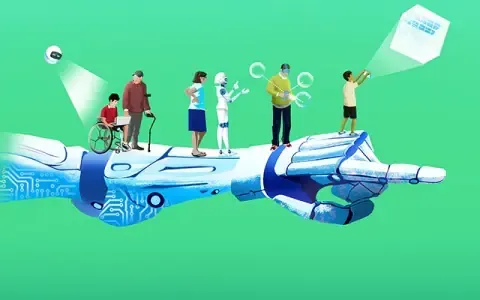Empowering People, Enhancing Business - Navigating the Shift to Human Sustainability
In today's economy, the paramount importance of human elements—such as creativity, empathy, and innovation—marks a significant shift from past industrial and knowledge economies. This evolution highlights the critical role of human traits in driving organisational value across various dimensions, including revenue, innovation, efficiency, and brand relevance. However, the efforts of organisations to prioritise these crucial human connections often fall short, primarily due to a legacy mindset focused on extracting value from individuals rather than collaborating with them to forge a better future for both parties.

Global Human Capital Trends
The concept of human sustainability, introduced in the 2023 Global Human Capital Trends report, emerges as a pivotal reorientation for organisations. It emphasises creating value for individuals as human beings, thereby enhancing their health, well-being, employability, and sense of belonging and purpose. This shift away from viewing employees merely as resources to be utilised towards seeing them as stakeholders in the organisation's success represents a fundamental change in corporate philosophy. Gabriel Sander of Cuervo encapsulates this sentiment by stating that companies cannot guarantee lifelong employment but should ensure lifelong employability.
Organisations that adopt this perspective are likely to initiate a virtuous cycle where improving human outcomes leads to enhanced organisational performance and vice versa, contributing to a more sustainable future for all involved. This redefinition of the "S" in ESG (Environmental, Social, and Governance) is crucial as the current interpretation of ESG becomes increasingly criticised for its vagueness and lack of clarity, particularly regarding social metrics. The traditional approach to the social component under ESG often lacks clear definitions or standardisation, leading to narrow or self-promotional measures of human impact that fail to capture the actual value created for individuals.
Finite Resources
The drive towards human sustainability parallels the growing recognition of the Earth as a finite resource requiring careful stewardship. Just as environmental sustainability calls for reevaluating how we interact with our planet, human sustainability demands a comprehensive effort to add value to the lives of those an organisation touches. This includes current and future employees, contractors, customers, investors, and the broader community.
Systemic Issues
However, achieving human sustainability extends beyond stakeholder capitalism, which often focuses on balancing various interests without addressing the root causes of systemic issues. True sustainability requires addressing these underlying challenges to create shared value at a systemic level rather than merely offering superficial solutions or compensations for negative impacts.
Despite the growing acknowledgment of the importance of human sustainability, the journey towards its realisation is still in its early stages. Only a small fraction of organisations claim to be leading in this area, with many efforts being fragmented and pursued in isolation. This indicates a significant gap between recognising the importance of human sustainability and implementing effective strategies to achieve it.
Unbalanced Relationships
The relationship between workers and organisations is increasingly strained, with only a minority of workers feeling that their employment has left them better off. This is compounded by challenges such as work stress, the potential displacement by technology, and a lack of support for informal workers. Moreover, despite efforts to improve diversity, equity, and inclusion (DEI), visible progress remains limited, particularly for frontline workers who often face poor conditions and limited opportunities for advancement.
Creating Value
The concept of human sustainability offers a pathway to address these challenges by focusing on creating value for individuals and, by extension, for the organisation itself. This involves a shift from an extractive approach that seeks to maximise the immediate value derived from individuals to one that invests in their long-term well-being and development.
A Long-Term Commitment
Leaders play a crucial role in advancing human sustainability by re-evaluating their organisation's relationship with its people. This includes adopting metrics that measure human outcomes, making a business case for human sustainability, tying leader and manager rewards to sustainability metrics, and integrating human sustainability governance into the board and C-suite. Additionally, involving workers and other stakeholders in co-creating roles and initiatives can help ensure that efforts to promote human sustainability are grounded in the needs and aspirations of those they aim to benefit.
Human sustainability represents a long-term commitment to improving the lives of individuals connected to an organisation. Organisations can improve their performance by prioritising, measuring, and enhancing human outcomes, contributing to a more sustainable and equitable future for society. This requires a fundamental rethinking of business practices and a willingness to invest in the well-being and development of people at all levels of the organisation.



